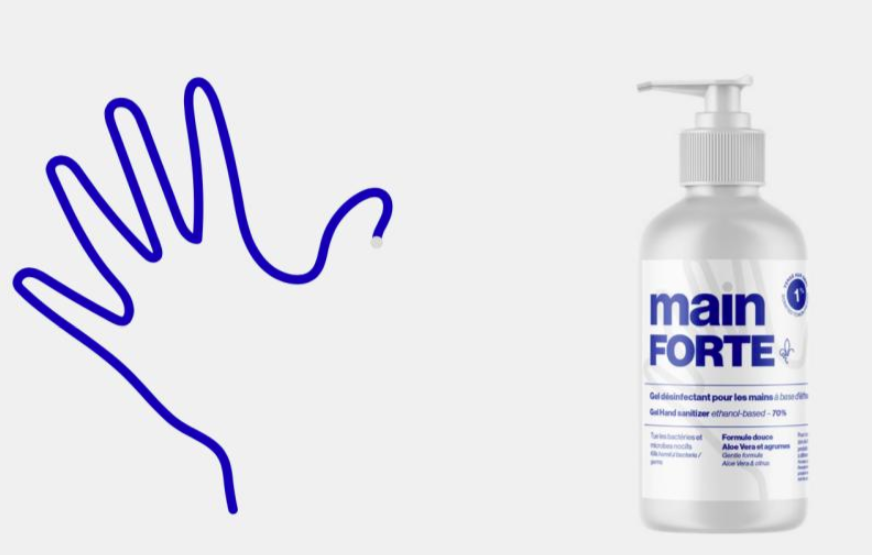Myret Zaki has never minced her words. For almost twenty years, we have been able to count on her sharp pen to reveal the ins and outs of the economic and financial world. A Romandie influencer par excellence, she has more than 12,000 subscribers on LinkedIn, the same number on Facebook, more than 4,000 on Twitter and YouTube videos that have sometimes garnered more than a million views.
Trained in financial analysis at Lombard Odier, she quickly turned to journalism. Her goal is to perfect her knowledge and share this expertise with as many people as possible. It is by following communication principles that are dear to her that Myret has become an opinion leader.
It is impossible to write a series of articles on personal marketing without including her!
Robin von Känel: You have become an iconic figure in finance and media in Switzerland. You describe yourself as an influencer. What made you want to become one?
Myret Zaki: I never planned to become an influencer or opinion leader, but I was passionate about the field of finance and I developed a certain skill. This expertise is the raw material on which you can build a brand. Especially if this expertise is rare. At that time, I was not yet known at all. And then came the 2008 crisis. There, all the investment of the last ten years paid off because I found myself one of the few people who could understand and explain the subprime crisis in detail. Favre publishing was looking for an author to write a book on the UBS crash. They came to ask me and I immediately said yes. The expertise was recognized, but it was still necessary to succeed in not making mistakes in the way of communicating, of presenting oneself. I was very aware of the difficulty of assuming these opinions in the world of finance. That is why my arguments were not light. All my communications were supported and documented to be unsinkable. They were strong convictions, independent and assumed thinking.
After a brilliant career in the Swiss media, you know the behind the scenes like the back of your hand. How do you get their attention?
If you want to get into the media, into Bilan, you have to go through journalists. You have to write to them, send them a press release written in an impactful way. They receive thousands of press releases. So you have to be able to write one that catches the eye with an innovative subject. Capturing the attention of journalists or an audience on social networks is the same approach.
What are your three tips for achieving this?
- He develops a thought, a speech, on a topic that is of public interest. Very important.
- Journalists like to be the first to talk about a subject. Offering them exclusivity is a good way to convince them.
- You should also try to have an interview, come to the editorial office, follow up with them by phone. A one-on-one meeting is much more effective than sending a press release.
Once initial contact has been made, how do you keep their attention?
Above all, do not let yourself be overtaken in your own field. Whether it is marketing, finance or blockchain, everything moves very quickly. You have to stay at the forefront, be the one who will set the trends first, have a relevant opinion. It is a race in which you must not let yourself be overtaken. Publishing an article in the press can help, but the best is social networks.
Now that you have left the Bilan editorial team, you want to use your knowledge to help other people become influencers. Why this desire?
If I start coaching influencers, it’s because I want everyone in our society to commit to delivering information of public interest. This will then legitimize that you have 20% of your message that is sales. If you make a purely marketing speech, even a very well-rehearsed one, you will not have an audience. It’s the same for all the people who have become icons. They were able to develop a relevant speech and when they had something to sell, customers came naturally.
Are there any shortcuts?
In general, this involves carrying out operations that have a tenfold impact. You have to find the unique marketing stunt that will create a positive buzz. You have to create the event that no one would have thought of with a notable speaker, create your channel where you make outstanding statements, or even release an investigative book. In my case, it was my book on UBS. Overnight, I became more famous.
Your hobby horse has been the financial crisis. How do you identify the topics that will create buzz?
This is by far the most difficult. You have to constantly inform yourself to learn more about new themes, new problems and be able to explain them. You have to be passionate, read everything that comes out, books, articles, continuing education. Talk about it on social networks to create a debate and promote collective intelligence.
Every time you can speak, be a keynote speaker, moderate a round table, take part in a panel, you have to take the plunge. It can polarize, you can have hostile opponents, but you have to have a minimum of thick skin, not be afraid to debate. Being recognized as an expert means seizing every opportunity for exposure, going to panels, to meetups. For those who want to show their expertise, it is free communication. If we are not ready to expose ourselves, to take risks, we greatly reduce our capacity for influence.
You argue that every person is a medium. What are the implications for businesses?
We are in a world of sanitized corporate communications that often fail to capture the desired audience. Interviews are over-prepared, they no longer move, they do not mobilize. If companies are forced to sponsor their posts, it is also because they do not naturally attract the reader with their content. The audience equation is implacable. The solution for more authenticity is to communicate more authentic content, let the personality of the CEO express himself, make them talk about their values, and also give more room to employees to express themselves, deliver their ideas in a natural way, within the limits set by the company.
Can all companies benefit from it?
Large groups will be able to humanize themselves a little by delivering more relevant content for the public. What will happen is that some senior executives will be encouraged to post more personal messages. They will be coached to speak more authentically, to bring values closer to people. Those who will really gain from this will be the independents and entrepreneurs.
To remember
Myret Zaki is an excellent example of a Swiss-made influencer. Contrary to what some gurus profess who advise to stand out by all means, becoming an opinion leader in Switzerland is more subtle. As she understood very well, it requires above all to become an expert, to make relevant statements and to remain authentic.
However, being an expert is not enough to become an opinion leader. You also have to know how to take risks, expose yourself publicly, dare to reveal and assume your opinions, make enemies, contact journalists, etc. Successful communication indeed requires a good dose of effort and courage.
Myret also uses social media a lot, to stay informed as well as to maintain dialogue with her community. At a time when we often hear marketing experts compare the effectiveness of these new communication channels with traditional media, she has been able to reconcile the two. She uses offline communication (articles, interviews, conferences, networking) to build a reputation as a credible expert and online communication as a sounding board to multiply her impact and unite an engaged community.



